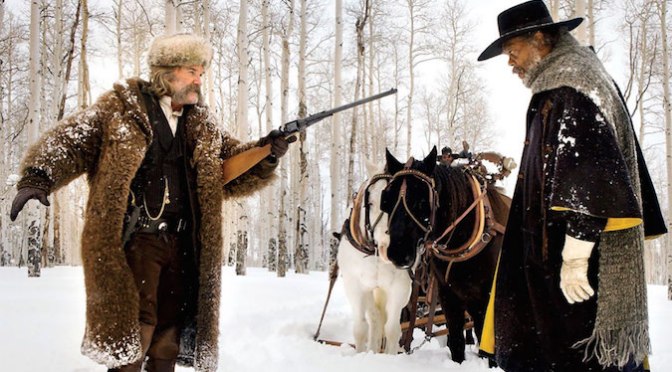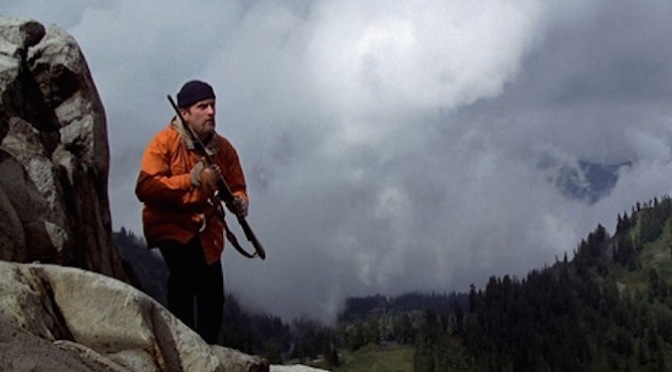Hey — it’s Christmas! Let’s go to the movies. Slug some hot chocolate, throw on your wool hat, follow the colored lights strung from tree to tree on the citywide commons to the movie theater or the cinema or the multiplex or whatever you call it in your neck of the woods. I’ll get the tickets, you get the popcorn. What do you want to see? It’s Christmas, remember, so we need something that will encourage our merriment and warm up our capacity for joy. That disqualifies The Revenant. What about Star Wars for the fifth time? What do you mean you saw it again this morning? Why didn’t you invite me? Whatever, just go get the popcorn.
Here we go: a new Tarantino movie. One would think that a brand spankin’ new flick from Tarantino would, if nothing else, be entertaining. It’s Tarantino. This is the diabolical purveyor of histrionic, action-packed jaunts that bleed style and ooze cool, of movies that have banging soundtracks and automatically generate an Academy Award for Christoph Waltz. This is the director that champions violence in film as fun, responding to the masses that claim violence in film is a potentially toxic influence on viewers with a beautifully composed shot of red blood spewing out of a newly-severed neck. Take that! The violence-is-bad point always reminds me of part of the testimony of famed censorship bogeyman William Gaines during the 1954 hearings on the validity of the violent comic books he produced: “Do we think our children are so evil, so simpleminded, that it takes a story of murder to set them to murder, a story of robbery to set them to robbery?” I picture Tarantino saying that, only with a lot more gesticulation and overeagerness and a lot of “alright, you know, okay?” and a lot of averted glances.










